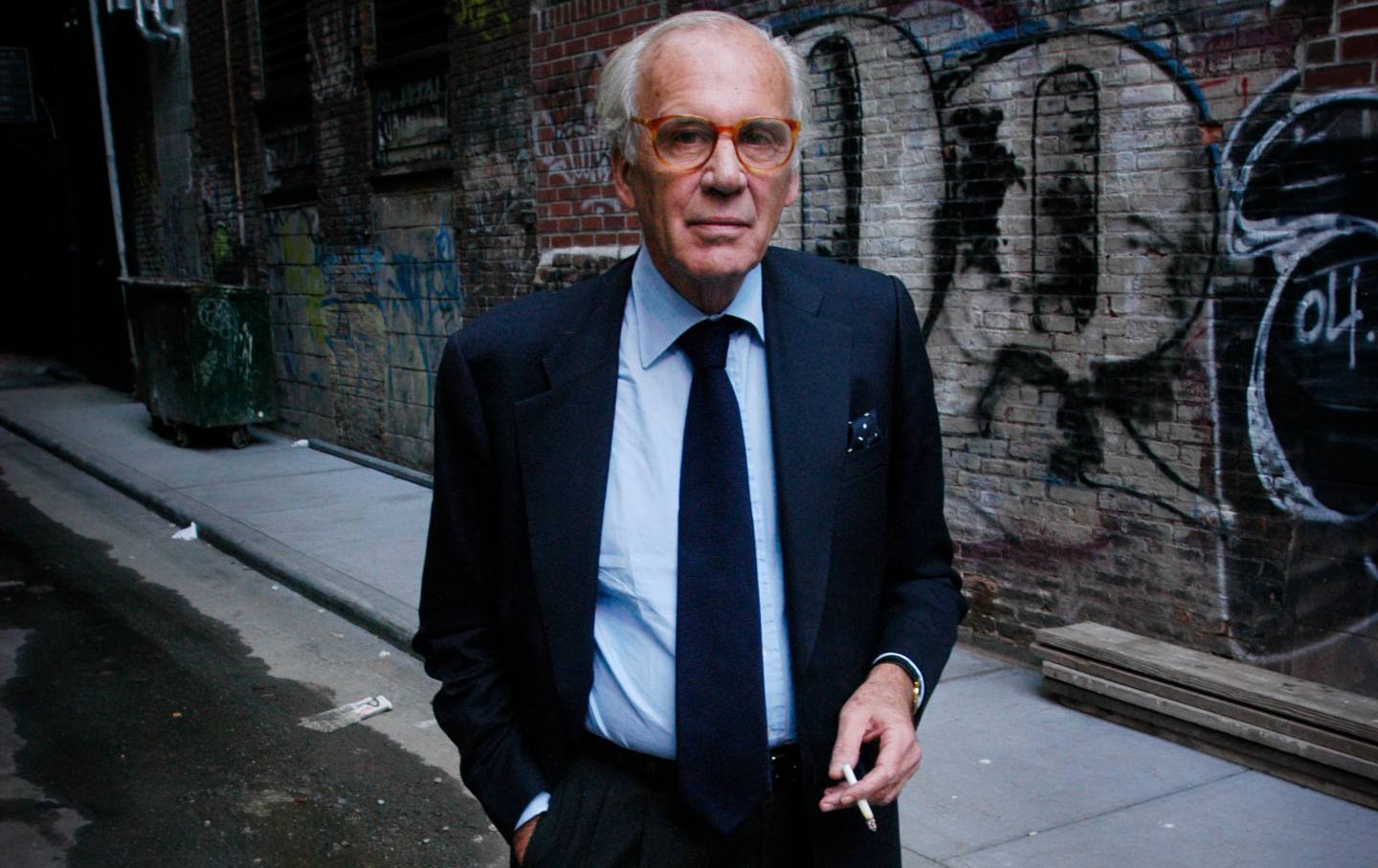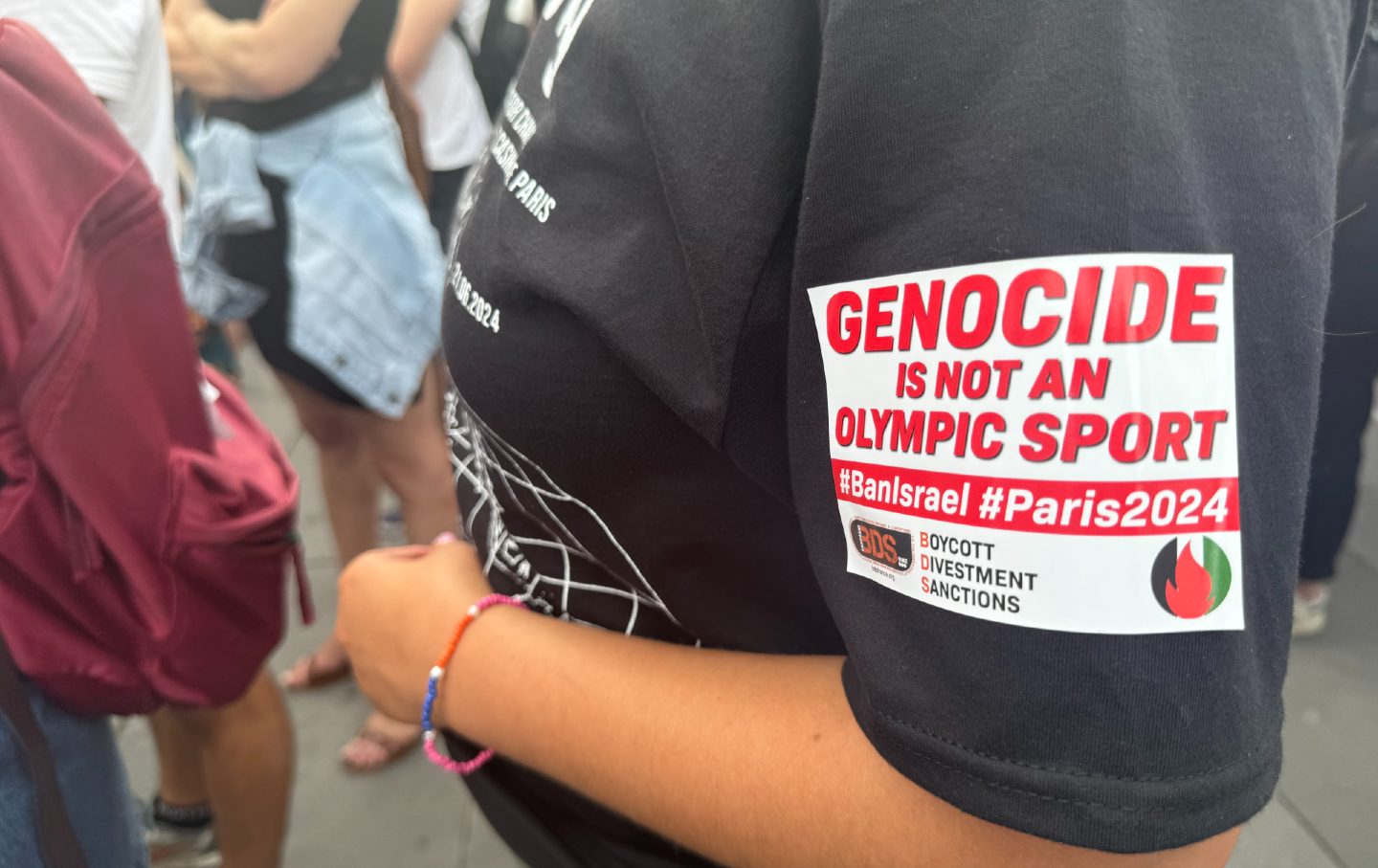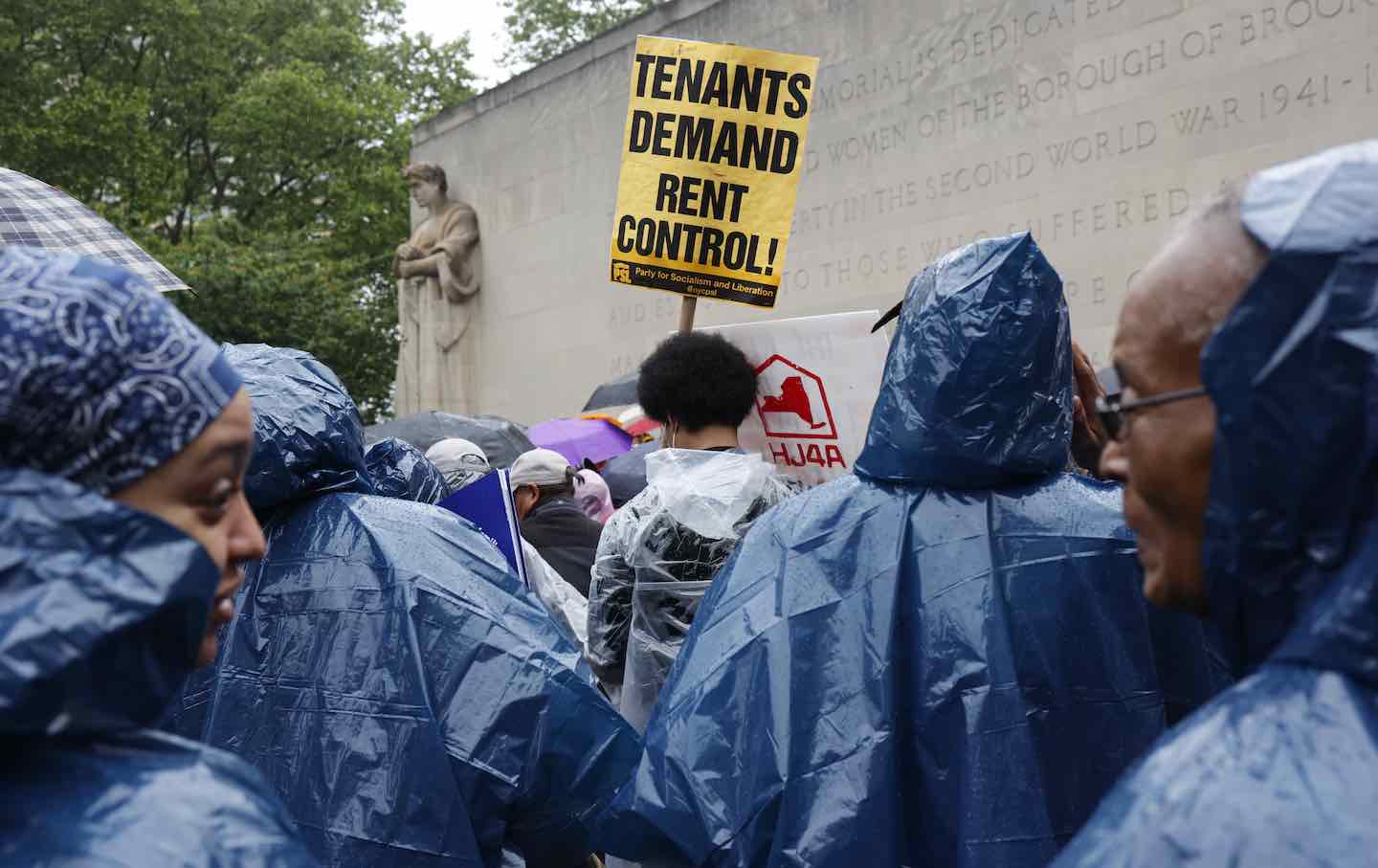Ban the 24-Hour Workday!
In some states—New York is one of them—it is still legal to hire someone for a 24-hour shift, but to only pay them for a fraction of those hours.

An honest day’s pay for an honest day’s work has long been an American ideal. So it may surprise you to learn that it is legal in New York State to hire someone for a 24-hour shift—but to pay them for just a fraction of those hours. Sanctioned by New York State Labor Law and governing the work of home health aides, it’s called the “13-Hour Rule.”
Last month, hundreds of protesters gathered in front of City Hall in New York City, demanding to end the practice that would surprise most Americans. Their signs and shouts in Spanish, Cantonese, and English exclaim, “NO MORE 24!” Much of the ire is focused on City Council Speaker Adrienne Adams. Their demand? For the council to bring Intro. 175—the bill banning this forced labor—to a vote.
The individuals who work these shifts are not live-in help. They are on a job site. Working for 24 hours straight.
Both city and state government are complicit in the current unfair arrangement. Earlier last month, I met Vincent Cao from the Chinese Staff and Workers Association at a picket line in front of the New York State Department of Labor (DOL). With him were a dozen off-duty attendants and activists protesting the DOL’s decision to quietly close more than 100 cases of wage theft of home health aides under investigation since 2018. In April 2023, the DOL began closing the cases—despite previous updates to claimants that their files were moving forward. In the letters informing aides that their cases had been closed was the assertion that they had other means available to resolve their claims. The DOL would not continue investigating claims from home care aides whose unions had entered into binding arbitration agreements with their employers. These workers were represented by 1199SEIU United Healthcare Workers East.
The closing of the cases took them by surprise. Cao told me, “A lot of home care workers call us.… They tell me they work many 24-hour shifts continuously.… You don’t go home.… For those three, four days, you don’t get much sleep.” According to Cao, even after working 24 hours, they are often not relieved and instead are required to continue on to another shift. The draconian demands of the job trigger chaos in their personal lives.
The 13-Hour Rule allows the agencies that provide and employ home health aides the right to schedule a worker for a 24-hour shift—but only pay them for 13 hours if they have been provided with an eight-hour sleep break (including five hours of uninterrupted sleep) and three hours of meal breaks. How can a worker asked to care for someone who needs 24-hour assistance plan their mandated breaks? According to Cao, when workers complain that their shifts do not allow them the required time for sleep and meals, the agencies blacklist them. In other locales without such a rule, the work of 24-hour caregiving is divided among two or three people.
In 2019, bill A3145A was introduced in the NY State Assembly to mandate scheduling home health aides into at least two shifts. This bill, too, has languished instead of being brought to a vote. Assemblyman Harvey Epstein, the bill’s sponsor, noted that there “has not been enough community pressure at the state level to advance the issue” But while our politicians wait, the workers continue to suffer. Commenting on this bill, Governor Hochel stated that the cost would add an additional $1 billion to the budget—with the implication that this was too much. Yet, somehow, the governor found $1.54 billion for a stadium in Buffalo.
The issue isn’t just wage theft—or exploitation. Sleep-deprived people make mistakes that can undermine the care of their patients. Given the lack of sleep and the requirements of the job—like counting out medicine or cooking on a hot stove—accidents can easily happen.
Can anyone imagine a security guard whose supervisor schedules them for a 24-hour shift—but then tells him that even though he will be at the site for 24 hours, he will only be paid for 13 hours? The difference here is gender. Home health aides in New York are predominantly immigrant women. Their plight is part of the long history in the United States of wages stolen from women—especially women of color.
Those defending the 13-Hour Rule assert that a 24-hour shift provides flexibility for staffing agencies. Banning the practice will raise the cost of care. Abolishing the rule would indeed increase the cost of care, as these workers are currently toiling at below minimum wage. But the current rule puts the needs of the agencies over those of patients and workers. Instead, the agencies should be required to provide proper care to people who hire them—and fair wages to those who provide that care to their clients.
Activists say one reason for the long-standing abuse lies in the lucrative confidential contracts between the agencies and the insurance companies and state providers like Medicaid that pay them. These contracts are awarded to agencies in a closed bid process. According to the Empire Center for Public Policy, New York State’s funding for personal care for the elderly and disabled is eight times higher than the national average. Fraud is rampant, and profits flow freely to insurance companies and agencies while the labor force is abused.
1199 SEIU, the union representing home attendants, should be fighting harder to end the 24-hour workday. But its efforts on the issue have been minimal, despite the union’s top spot in the lobbying dollars race in New York. Last year, the health aides who work under a binding arbitration clause battled their own union—objecting to the result of the mediation and arbitration process against 42 home health agencies that delivered an average payment of only $250 per worker when many were owed thousands of dollars. The February 2022 award covered eight years of labor and approximately 120,000 workers. The union touted the settlement, noting that paying more would have put home health agencies out of business. Which raises the question: Whose side is SEIU on? The union’s primary focus should be their workers’ wages and well-being—not the profit margins of the staffing agencies.
Commenting on Intro.175, a spokesperson for 1199SIEU stated that “city legislation…needs to be aligned with the state budget process to prevent immediate disruption of services and jobs. Homecare is funded by the state, not the city, and absent the necessary funding to convert 24-hour shifts into split shifts, it risks nursing home placement for thousands of homecare clients and subsequent job losses for their caregivers.” But without the legislation, where is the urgency to make the budget changes?
Popular
“swipe left below to view more authors”Swipe →Further delaying justice for the workers is the City Council’s slow-walking of a bill limiting shifts to 12 hours in New York City to circumvent the state’s 13-Hour Rule. Speaker Adams has not made bringing the bill to a vote a priority, voicing concern about “pitting groups against one another.” The concept of pitting disabled people against the home health agencies is preposterous. People with disabilities deserve proper care, and the home health agencies’ profits should not come at the expense of mandated and needed care for our fellow citizens.
After the hearing on Intro.175, interested groups, including 1199SEIU, negotiated to amend the bill. But even the amended version continues to be held back from a vote. The groups organizing the protests and picketing around New York have been doing so since 2015. How long before their efforts will be rewarded with reasonable legal protection for our vulnerable patients and workers?
Let’s ban the 24-hour workday, pay New York’s home health aides for their work, assign them humane schedules, and allow them the dignity and respect they deserve.
Thank you for reading The Nation
We hope you enjoyed the story you just read, just one of the many incisive, deeply-reported articles we publish daily. Now more than ever, we need fearless journalism that shifts the needle on important issues, uncovers malfeasance and corruption, and uplifts voices and perspectives that often go unheard in mainstream media.
Throughout this critical election year and a time of media austerity and renewed campus activism and rising labor organizing, independent journalism that gets to the heart of the matter is more critical than ever before. Donate right now and help us hold the powerful accountable, shine a light on issues that would otherwise be swept under the rug, and build a more just and equitable future.
For nearly 160 years, The Nation has stood for truth, justice, and moral clarity. As a reader-supported publication, we are not beholden to the whims of advertisers or a corporate owner. But it does take financial resources to report on stories that may take weeks or months to properly investigate, thoroughly edit and fact-check articles, and get our stories into the hands of readers.
Donate today and stand with us for a better future. Thank you for being a supporter of independent journalism.
More from The Nation

Lewis Lapham Salvaged From History What Was Useful, Beautiful, and True Lewis Lapham Salvaged From History What Was Useful, Beautiful, and True
Writer Lewis H. Lapham, longtime editor of Harper’s Magazine and the founder of Lapham’s Quarterly, died in Rome. He was 89.

The Paris Olympics Are Kicking Off With Protests The Paris Olympics Are Kicking Off With Protests
“The Olympic Games are profoundly disrupting the lives of French people,” the protesters wrote in a joint statement.“The question then arises: Who benefits from the Games?”

Biden Said Rent Cap. Here’s What Tenant Organizers Say Must Happen Next. Biden Said Rent Cap. Here’s What Tenant Organizers Say Must Happen Next.
The president called on Congress to act, but he could enact a rent stabilization policy with a stroke of his pen. Tenant leaders say they will keep organizing until it happens.

Why There Are No Trans Women Competing at the Paris Games Why There Are No Trans Women Competing at the Paris Games
There are at least two trans nonbinary athletes—Quinn and Nikki Hiltz—and they’re impossible not to cheer for.

The Appalling Social Cleansing of Olympic Paris The Appalling Social Cleansing of Olympic Paris
In the last year, an estimated 12,500 vulnerable Paris residents were forced from their homes.

At My High School, the Library Is for Everything but Books At My High School, the Library Is for Everything but Books
The administration has rebranded our library as a communal space for doing almost everything except reading.


